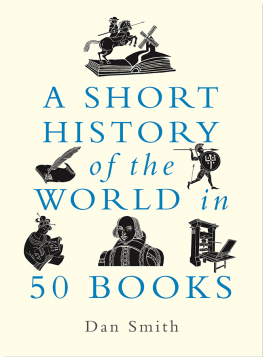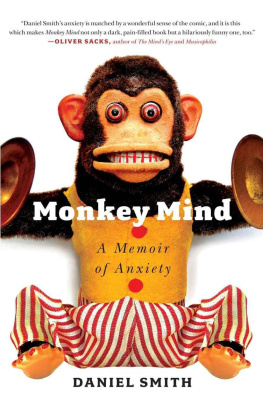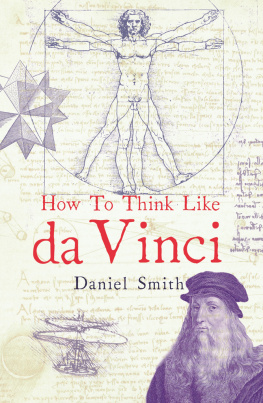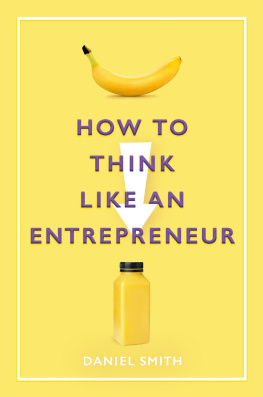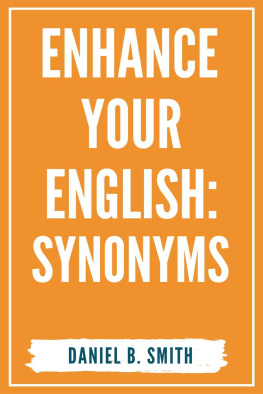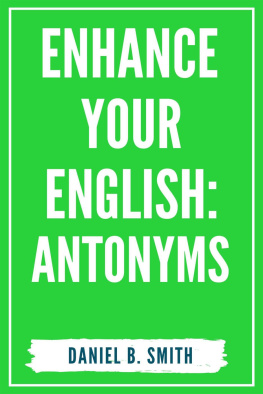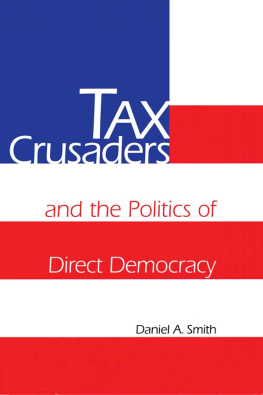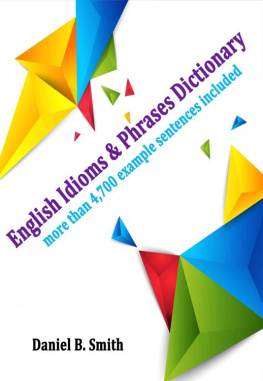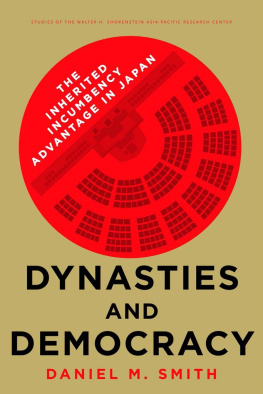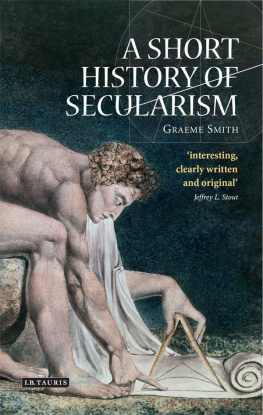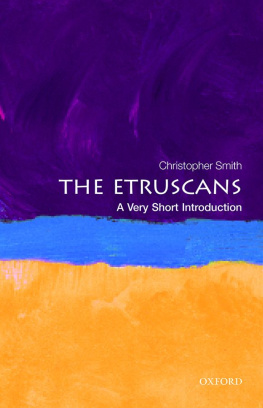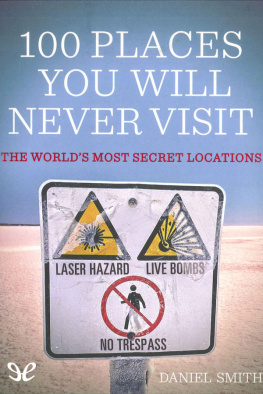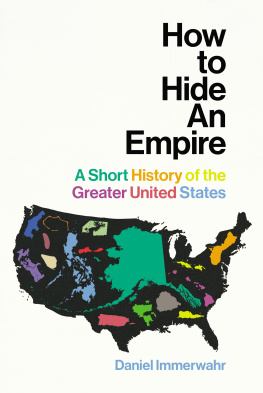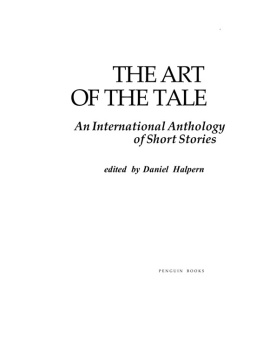Daniel Smith - A Short History of the World in 50 Books
Here you can read online Daniel Smith - A Short History of the World in 50 Books full text of the book (entire story) in english for free. Download pdf and epub, get meaning, cover and reviews about this ebook. year: 2022, publisher: MikeOMara, genre: Religion. Description of the work, (preface) as well as reviews are available. Best literature library LitArk.com created for fans of good reading and offers a wide selection of genres:
Romance novel
Science fiction
Adventure
Detective
Science
History
Home and family
Prose
Art
Politics
Computer
Non-fiction
Religion
Business
Children
Humor
Choose a favorite category and find really read worthwhile books. Enjoy immersion in the world of imagination, feel the emotions of the characters or learn something new for yourself, make an fascinating discovery.
- Book:A Short History of the World in 50 Books
- Author:
- Publisher:MikeOMara
- Genre:
- Year:2022
- Rating:3 / 5
- Favourites:Add to favourites
- Your mark:
- 60
- 1
- 2
- 3
- 4
- 5
A Short History of the World in 50 Books: summary, description and annotation
We offer to read an annotation, description, summary or preface (depends on what the author of the book "A Short History of the World in 50 Books" wrote himself). If you haven't found the necessary information about the book — write in the comments, we will try to find it.
A Short History of the World in 50 Books — read online for free the complete book (whole text) full work
Below is the text of the book, divided by pages. System saving the place of the last page read, allows you to conveniently read the book "A Short History of the World in 50 Books" online for free, without having to search again every time where you left off. Put a bookmark, and you can go to the page where you finished reading at any time.
Font size:
Interval:
Bookmark:


Some other bestselling titles by Daniel Smith
How to Think Like a Philosopher
How to Think Like Sherlock: Improve Your Powers of
Observation, Memory and Deduction
The Ardlamont Mystery: The Real-Life Story Behind the
Creation of Sherlock Holmes
The Little Book of Big Ideas: 150 Concepts and
Breakthroughs that Transformed History
Think You Know it All? The Activity Book for Grown-Ups

First published in Great Britain in 2022 by
Michael OMara Books Limited
9 Lion Yard
Tremadoc Road
London SW4 7NQ
Copyright Michael OMara Books Limited 2022
All rights reserved. You may not copy, store, distribute, transmit, reproduce or otherwise make available this publication (or any part of it) in any form, or by any means (electronic, digital, optical, mechanical, photocopying, recording or otherwise), without the prior written permission of the publisher. Any person who does any unauthorized act in relation to this publication may be liable to criminal prosecution and civil claims for damages.
A CIP catalogue record for this book is available from the British Library
ISBN: 978-1-78929-408-8 in hardback print format
ISBN: 978-1-78929-478-1 in trade paperback format
ISBN: 978-1-78929-411-8 in ebook format
Illustrations by Aubrey Smith, map by David Woodroffe
www.mombooks.com
For Charlotte and Ben
my brilliant bookworms
Contents


In books lies the soul of the whole Past Time; the articulate audible voice of the Past, when the body and material substance of it has altogether vanished like a dream.
Thomas Carlyle, The Hero as a Man of Letters (1841)
What is a book? Technically, we might say it is any set of printed pages that are fastened together inside a cover. But what, then, of all those books that you can read on your electronic device? And how do we account for those ancient texts perhaps inscribed on a stone tablet or even the bones of a sacrificial animal? We have a rich literary history that far pre-dates the technology that gave us paper, let alone the wherewithal to bind that paper together and stick a cover on it. Better, then, to adopt a much broader definition the book is a written work of fiction or non-fiction created with the intention that it should be read by others. On what material it was originally set down hardly matters.
We are the only species, of course, to produce books: an object that encapsulates the ideas and imagination of its author or authors. The book has a unique status as an emblem of human culture and civilization. It is a vessel for sharing stories, dispersing knowledge, examining the nature of our extraordinary species and imagining what lies beyond our known world. As Carlyle suggests, books ultimately provide an invaluable and comprehensive record of what it means to be human. Sometimes, they may even give us a window onto the divine. As Jorge Luis Borges once wrote: I have always imagined Paradise as a kind of library.
This volume takes a curated list of fifty of the most influential books of all time, putting each into its historical context. From ancient game-changers like the Epic of Gilgamesh and the Iliad, through sacred texts and works of philosophical rumination by the likes of Confucius and Plato, via scientific treatises, historic firsts (such as the first printed book) and cultural works of enduring impact (think Shakespeare, Cervantes and Joseph Heller, these are volumes that are at once both products of their societies and vital texts in moulding those same civilizations.
What this selection isnt is a celebration of the literary canon, a reaffirmation of the best books from the past. You will find no Austen or Dickens here, nor Melville or Dostoyevsky or Garca Mrquez. There is Shakespeare and Cervantes and Tolstoy, but not because they are somehow better than those others. Rather, this collection aims to select books that reflect the passage of human history mostly our progress and occasionally our regression too. Most not only reflect, though, but themselves changed how we think and live not merely symbols of history but agents of it. By definition, they are important works and, in broad critical terms, great works too. But this book is not concerned with which works are the greatest of all there are plenty of other volumes that try to figure that out, and good luck to them.
Inevitably, making a selection such as this is highly subjective. It is a process as much defined by omission as by what is chosen. In selecting fifty titles, we can only hope to dip our toe (our little toe at that) into the vast pool of literature from ages gone by. In doing so, it is folly to make any claim for definitiveness. Instead, we are playing a literary game. Which of the fifty choices are indisputable? Which are taking a place better deserved by some other work? Everyone will have their own ideas. In the end, it matters little that we all agree. More important is that by turning our minds to the question in the first place, we might meet some unfamiliar works, revisit some old favourites, and gain some insight and pleasure in the process.
Books are brilliant. They are building blocks of our collective identity. They are monuments to our civilization. They are gateways to new worlds. We cannot explore them enough. Carl Sagan summed it up elegantly: Across the millennia, an author is speaking clearly and silently inside your head, directly to you. Writing is perhaps the greatest of human inventions, binding together people who never knew each other, citizens of distant epochs. Books break the shackles of time. A book is proof that humans are capable of working magic.

DATE: THIRD MILLENNIUM BC

Widely considered the worlds first known work of literary fiction, The Epic of Gilgamesh is a long poem telling the adventures of Gilgamesh, a king from the ancient Sumerian civilization centred around the modern-day region of Iraq and Syria. (Historical records suggest that there was indeed a king by that name who probably ruled in the early part of the third millennium BC.) Today, we have some 3,200 lines of the text, thought to be about 8090 per cent of the original total. Authored in the latter part of the third millennium BC, Gilgamesh may justly be regarded as the first great leap forward in literary history the original masterwork of imaginative thinking preserved in written form.

The story itself is quite the romp. Gilgamesh, described as one-third human and two-thirds deity (his mother, Ninsun, being a goddess and his father, a mere mortal), is King of Uruk, a sparkling walled city in southern Mesopotamia. Ginormous and strong, he is also rather wayward, lording it over the men of Uruk with his athletic prowess and exercising what he considers to be his right to engage with the citys women, especially new brides. The citizens grow tired of his misconduct and complain to the gods, so the goddess Aruru fashions him a companion, a fellow giant called Enkidu, from a piece of clay. Enkidu, it is hoped, will keep him on the straight and narrow.
Font size:
Interval:
Bookmark:
Similar books «A Short History of the World in 50 Books»
Look at similar books to A Short History of the World in 50 Books. We have selected literature similar in name and meaning in the hope of providing readers with more options to find new, interesting, not yet read works.
Discussion, reviews of the book A Short History of the World in 50 Books and just readers' own opinions. Leave your comments, write what you think about the work, its meaning or the main characters. Specify what exactly you liked and what you didn't like, and why you think so.

